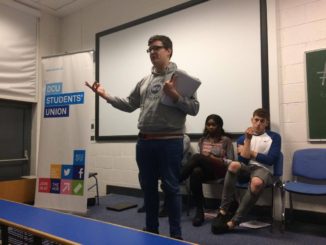
[dropcap]Universities [/dropcap]across Ireland have launched a campaign to encourage the government to take action against the funding crisis in third level education.
Seven Irish universities launched ‘Save Our Spark’, a campaign which tackles the expenses of state funding and aims to force the government to tackle this crisis.
The campaign aims to raise awareness of the crisis and encourage the public to sign petitions asking local TDs to act on it.
“If the higher education crisis is not addressed by Government urgently, then we risk a serious drop in quality or a shortfall in places for students in the future,” said Jim Miley, Director General of the Irish Universities Association.
State funding for universities in Ireland is currently at €5,000 per third level student, half of what it was a decade ago and only a fraction of what it is compared to other European countries.
The Budget 2019 saw third level funding being granted a €150 million increase.
The IUA have developed the ‘Save Our Spark’ campaign after over two years of campaigning this action to the government.
The IUA believe that there is a huge risk of a significant drop in education quality if the funding crisis is not tackled and improved in the coming years.
“For the first time ever, all seven Irish universities are coming together to demand urgent action on the funding crisis, as we need substantial investment to accommodate the extra students that are expected to enter the system over the next decade,” said Miley.
The campaign includes links to petitions that call on the Department of Education to address this problem and tackle the under-funding, as well as links to those that are members of the Oireachtas Education Committee.
The campaign came to be after the two years of inaction since the publication of the Cassells Report, a report in which a number of funding options were put forward.
The seven universities involved in the campaign are Dublin City University, Maynooth University, National University of Ireland Galway, Trinity College Dublin, University College Cork, University College Dublin, and University of Limerick.
“Our future economic competitiveness will be eroded and there will be a serious drop in quality if the public funding deficit is not addressed. If urgent action is not taken, there’s a real risk that today’s 7 and 8-year old primary school students will not have sufficient college places available to them in 2030 when the demographic bulge peaks with an additional 40,000 students seeking to access third level,” said Lia O’Sullivan, the IUA head of communications.
Ellen Fitzpatrick
Image credit: Flickr



